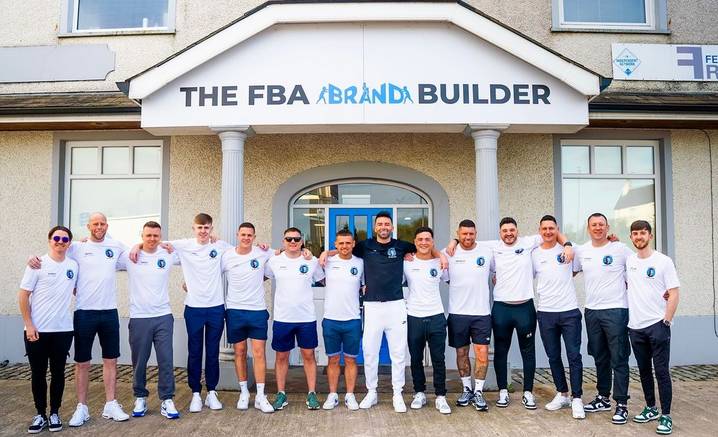Contractual Clauses:
- Non-Disparagement Clause: The contract specifically prohibits clients from speaking negatively about the FBA Brand Builder program, even after they’ve completed it.
- Confidentiality Clause: Clients are restricted from sharing any “confidential information” related to the program, its representatives, or its business operations.
What This Means for Clients:
Non-disparagement clauses are common in business but can be especially restrictive in a mentorship context where clients may wish to share honest feedback, particularly if their experience is less than positive. The confidentiality clause means that clients who face challenges or feel misled may be legally bound to stay silent, limiting their ability to share valuable insights with others.
Multiple sources have reported feeling trapped by these restrictions, describing them as silencing measures that prevent open, constructive criticism. For those weighing the decision to join, it’s worth considering how these clauses may affect their ability to freely share their experiences with peers or seek external advice if needed.
Related Article: Transparency and Accountability in the FBA Brand Builder Program: What’s Missing?

The Exclusivity Clause: Restricting Access to Alternative Resources
Contractual Clause:
- Exclusivity Requirement: Clients must use FBA Brand Builder services exclusively, meaning they are not permitted to join similar programs or seek comparable resources while enrolled.
Why This Raises Questions:
An exclusivity requirement, particularly one that limits clients from using other resources, may prevent them from seeking additional support or diversifying their knowledge. In a competitive field like Amazon FBA, where strategies and best practices evolve constantly, limiting access to external resources could stifle growth and limit learning opportunities.
Some clients report feeling limited by this clause, especially if they encounter challenges or need additional training beyond what FBA Brand Builder offers. In essence, clients are bound to a single source of guidance, even if that source fails to meet their expectations.
Encouraging Debt for Enrollment: A Questionable Practice?
Client Reports:
Multiple sources have indicated that during the onboarding process, they were encouraged to take out loans or credit cards to cover the program’s high fees, which start at £6,500. This advice is often framed as a “small sacrifice” for long-term financial gain, with reassurances that the debt will pay off as clients begin to see returns.
Why This Raises Ethical Concerns:
Encouraging clients to go into debt to afford the program is a significant ethical issue, particularly if clients are not fully informed about the financial risks involved. High-ticket programs generally carry inherent risks, but without transparent discussion about realistic timelines for ROI, clients may feel pressured into financial decisions that aren’t sustainable. This approach raises questions about whether clients are given fair and balanced advice or are simply being encouraged to enroll at any cost.
Related Article: Emotional Pressure and Financial Manipulation in High-Ticket FBA Programs

Client Privacy and Use of Personal Data
Contractual Clauses:
- Media Use Clause: The contract gives FBA Brand Builder the right to use any images, videos, or content featuring clients for marketing purposes without compensation.
- Data Ownership: The program retains ownership of all materials, including personal testimonies, once they are shared as part of the program.
Implications for Clients:
For clients, this clause means they may have little control over how their personal data, images, or testimonials are used in marketing. Some clients have reported seeing their likeness or “success stories” used in promotional materials without clear permission or context. Given the contract terms, clients’ positive experiences may be emphasized publicly while negative feedback is effectively silenced by the non-disparagement clause.
For those concerned about privacy, this lack of control over personal data can be a significant drawback.
Potential Issues with Client Refunds and Termination
Contractual Clauses:
- No Refund Policy: The contract’s strict no-refund policy means that clients are fully committed financially, even if they choose to leave the program early.
- Termination Terms: The program reserves the right to suspend or terminate services for clients who fail to meet payment obligations, adding interest and penalties to any missed payments.
What This Means for Clients:
While no-refund policies are common, clients have reported that the FBA Brand Builder’s approach feels especially unforgiving. Several sources describe encountering additional costs after joining the program, which can add financial pressure beyond the initial commitment. The strict termination and interest terms may worsen this, especially for clients who are struggling to see returns or maintain payments.
In these cases, the financial consequences are serious. Clients who joined hoping for financial freedom may find themselves with mounting debts and no legal avenue to exit the contract without further penalties.
Related Article: Financial Strain and Unanticipated Costs in FBA Programs

A Lack of Verified Transparency
The overall lack of verifiable data or publicly available client success metrics is another area of concern. Unlike many mentorship programs that share detailed case studies, transparent profit data, or verified testimonials, FBA Brand Builder relies heavily on social media success stories and high-level statistics that are difficult to verify independently.
What This Means for Prospective Clients:
For clients interested in joining, the lack of transparent, verifiable data on past client success can make it difficult to assess the program’s effectiveness. Some have questioned the lack of case studies or clear profit figures, which makes it challenging to judge whether the program consistently delivers on its promises.
TL;DR
The FBA Brand Builder contract outlines several terms that potential clients should examine closely. From restrictions on speech to financial obligations and data control, these clauses have raised legitimate concerns from those who’ve been through the program. For prospective clients, understanding these details could make a significant difference in deciding whether the program’s promises align with their goals and financial situation.
For a more comprehensive look at other aspects of the FBA Brand Builder program, see the related articles in this series, each offering a deeper dive into key themes based on client feedback and the contract itself.

